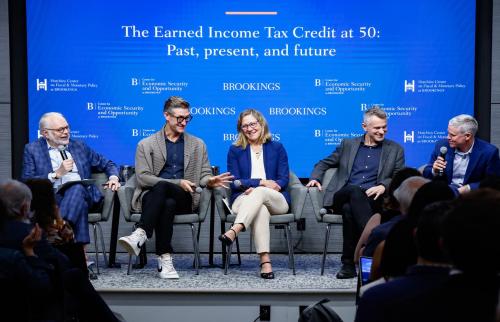This working paper was prepared for the National Bureau of Economic Research. The final version was published in Tax Policy and the Economy in 2024.
Abstract
Although it is generally blind with respect to race, the federal individual income tax can create racial disparities when factors that affect tax liability are associated with race. We provide new evidence on racial differences in marriage penalties and bonuses in the income tax, using data from eight waves of the Survey of Consumer Finances. Our results support Brown’s (2021) hypothesis that, controlling for income, penalties are more frequent and larger for Black couples than white couples. We link these results to racial differences in relative spousal earnings, the presence of dependents, and the level of income. We show that marriage rates are much higher among white adults than Black adults, which implies that two policy reforms we examine end up benefiting a greater share of white adults than Black adults.
-
Acknowledgements and disclosures
This work was supported in part by the Robert Wood Johnson Foundation and Arnold Ventures. Other than the aforementioned, the authors did not receive financial support from any firm or person for this article or from any firm or person with a financial or political interest in this article. The authors are not currently an officer, director, or board member of any organization with a financial or political interest in this article.
The Brookings Institution is financed through the support of a diverse array of foundations, corporations, governments, individuals, as well as an endowment. A list of donors can be found in our annual reports published online here. The findings, interpretations, and conclusions in this report are solely those of its author(s) and are not influenced by any donation.
The Brookings Institution is committed to quality, independence, and impact.
We are supported by a diverse array of funders. In line with our values and policies, each Brookings publication represents the sole views of its author(s).






